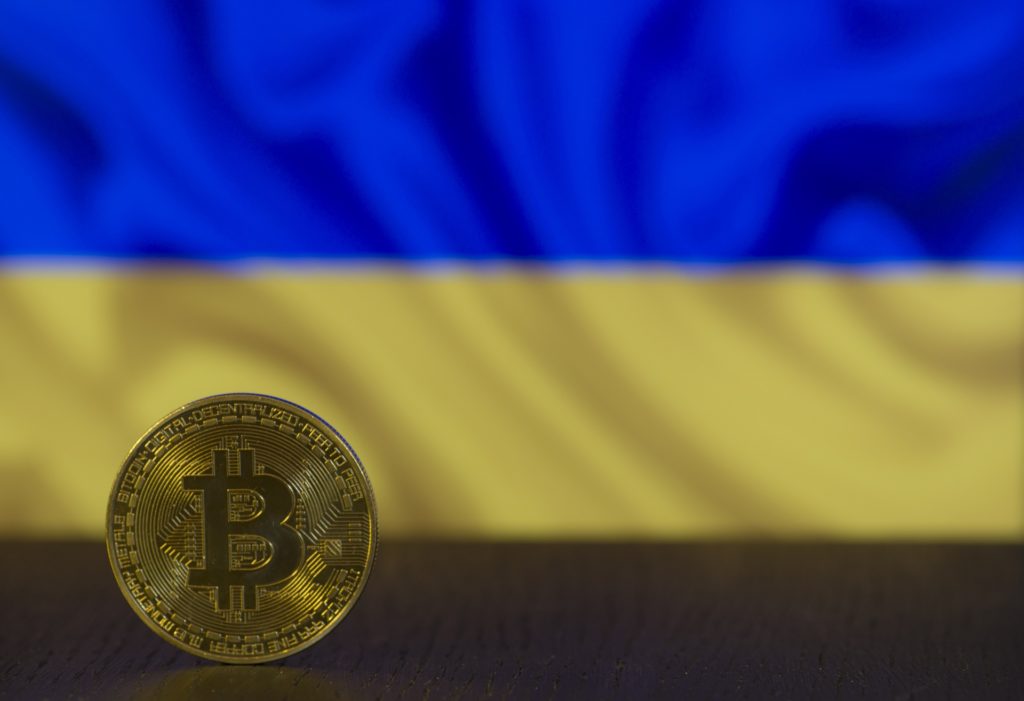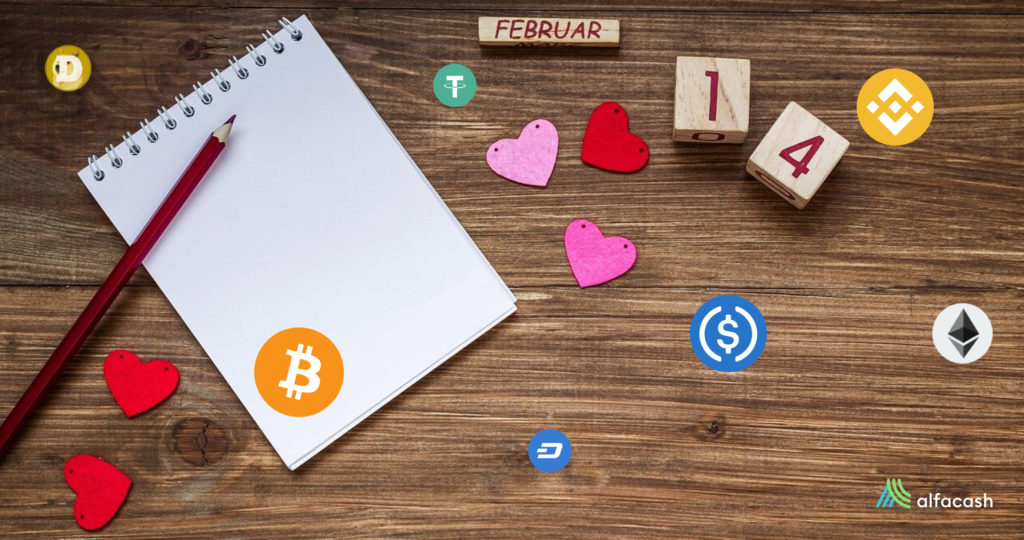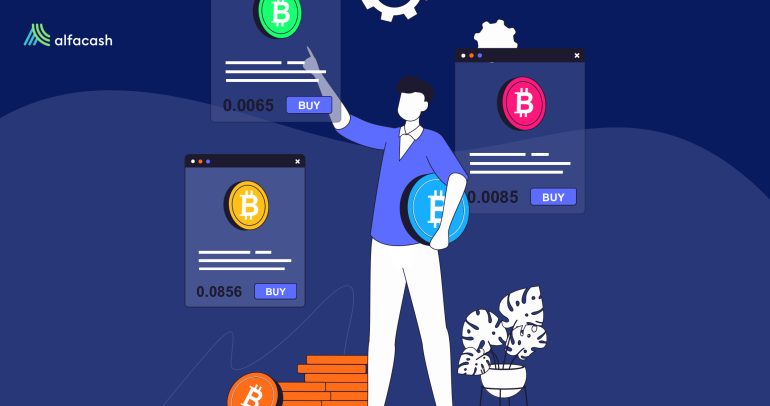We can say for sure that February 2022 wasn’t a nice time for most of the world —and especially don’t for Russia and Ukraine. However, this isn’t the worst month for the cryptocurrency market, either. Let’s take an overview.
Sur les marchés
- Bitcoin (BTC) almost ended the month in red, but it had an increase of over 13% at the last minute. The reason behind this behavior (bearish and later bullish) is probably the Russian invasion of Ukraine. In the beginning, the investors seemed to prefer gold to keep their reserves, but now the citizens in both of these countries have problems handling their fiat money. That’s why they’d be buying more Bitcoin and cryptos now —therefore, increasing the price.
- Ethereum (ETH) was also a last-minute case, increasing by over 7%. À l'intérieur de contrats intelligents field, Solana (SOL) didn’t have the same luck, decreasing by over 7% during last month. A new big hack inside its network may be the reason for this. Meanwhile, Terra (LUNA) has been quickly increasing with over 71% in February. This could be because now its native stablecoin (UST) will also be backed by a $1 billion Bitcoin reserve.
- Despite the possibility of a 51% attack, Monero (XMR) ended the month with an increase of over 15%. The fears came from the excessive hashrate accumulation by just one mining pool, MineXMR (+44%). However, there’s no evidence of malicious intent from this brand against Monero.
- There’s good news for XRP and Ripple. SEC’s motion against Ripple’s defense strategy was denied by the court, which significantly increased the XRP price (by over 27%). The legal battle seems to be coming to an end after more than a year.
- DeFi apps and NFTs sales were also hit in February. Selon Non fongible, la NFT sales decreased by over 54%. For its part, the Total Value Locked (TVL) on DeFi plunged by 6% before recovering another 7%. The total cryptocurrency market capitalization increased by over 7% as well [CoinMarketCap].
Réglementation sur la crypto
- Latin America rushes to create new cryptocurrency regulations. Ecuador, Panama, and Chile are developing their own regulatory framework for cryptocurrencies. The latter country is, indeed, aiming to make Bitcoin cours légal. Meanwhile, Colombia, Venezuela, et Argentina raised their taxes for cryptocurrency profits. Colombia is even asking the crypto exchanges to report every transaction of over $150.

- The Valkyrie Bitcoin Miners ETF (WGMI) was approved in the United States at the beginning of February. Meanwhile, there’s a legal proposal to remove the taxes from cryptocurrency profits of fewer than $200 in the country. Beyond these borders, the United Kingdom is aiming to tax profits for coin staking and DeFi loans.
- A controversial proposal to ban PoW crypto mining in Europe was almost discussed in Parliament. However, for now, the lawmakers reconsidered and are looking for other ways to deal with the potential environmental impact. But they also issued another troubling proposal, this time to include a “switch off” on smart contracts —which would let them modify decentralized apps.
- Russia won’t ban cryptocurrencies for now, but there’s une facture liée à la cryptographie waiting for approval. To summarize: crypto payments are banned, but the citizens can still buy, hold, and sell cryptos as an investment tool after being properly identified by a national bank. This seems now on stand-by, though, due to the war against Ukraine.
Hacks et escroqueries
- After five years, U.S. authorities captured the perpetrators of the billionaire Bitfinex hack. They seized $3.6 billion in BTC, and the destiny for the culprits and the money is still pending. Additionally, a recent research by Chainalysis, Laura Shin, and other experts showed that the culprit for the millionaire hack to The DAO (on Ethereum in 2016) is likely the Austrian programmer Toby Hoenisch.

- The DeFi protocol Wormhole in Solana was hacked by around $326 million, due to an unknown vulnerability. It’s now considered the second-largest DeFi hack after Réseau Poly. Apart from this one, another 19 DeFi protocols on Ethereum, Solana, BSC, and Polygon were hacked or made exit scams as well during February.
- OpenSea users suffered a large phishing attack through emails. Les escrocs sent them information about a fake contract migration to drain their wallets and NFTs. It’s believed that over $3 million in ETH and collectibles have been stolen this way.
- In some good news, the Great Manchester Police (U.K.) seized $22.25 million in ETH from a arnaque crypto-monnaie, and they gave back $5 million to the victims already. They’re investigating other 127 victim claims in several countries to return the rest of the money.
Autres nouvelles
- To help them in the current war, Ukraine has received almost $23 million in cryptocurrency donations so far. That makes it the first nation in history to fund the war using crypto. Currently, the electronic transfers and cards don’t work in Ukraine; while Russia was cut off from SWIFT international payments. Citizens in both countries are recurring to digital currencies as a way out.

- Twitter users can now make tips with ETH, along with BTC. The Bitcoin tipping was added in September 2021, while NFT profile picture verification was launched last month. ERC-20 tokens are the next ones on their plans.
- El Salvador will launch its new Bitcoin Bonds by mid-March. The investors won’t need any specific requirements and they can start with barely $100. The government également lancé the first public bitcoin-funded veterinary hospital in the country. All the procedures there will cost only $0,25 and the place counts with large facilities and numerous services.
Vous voulez échanger des BTC, ETH et d'autres jetons ? Tu peux le faire sans encombre sur Alfacash! Et n'oubliez pas que nous parlons de cela et de beaucoup d'autres choses sur nos médias sociaux.
Twitter * Télégramme * Instagram * Youtube *Facebook * Vkontakte








